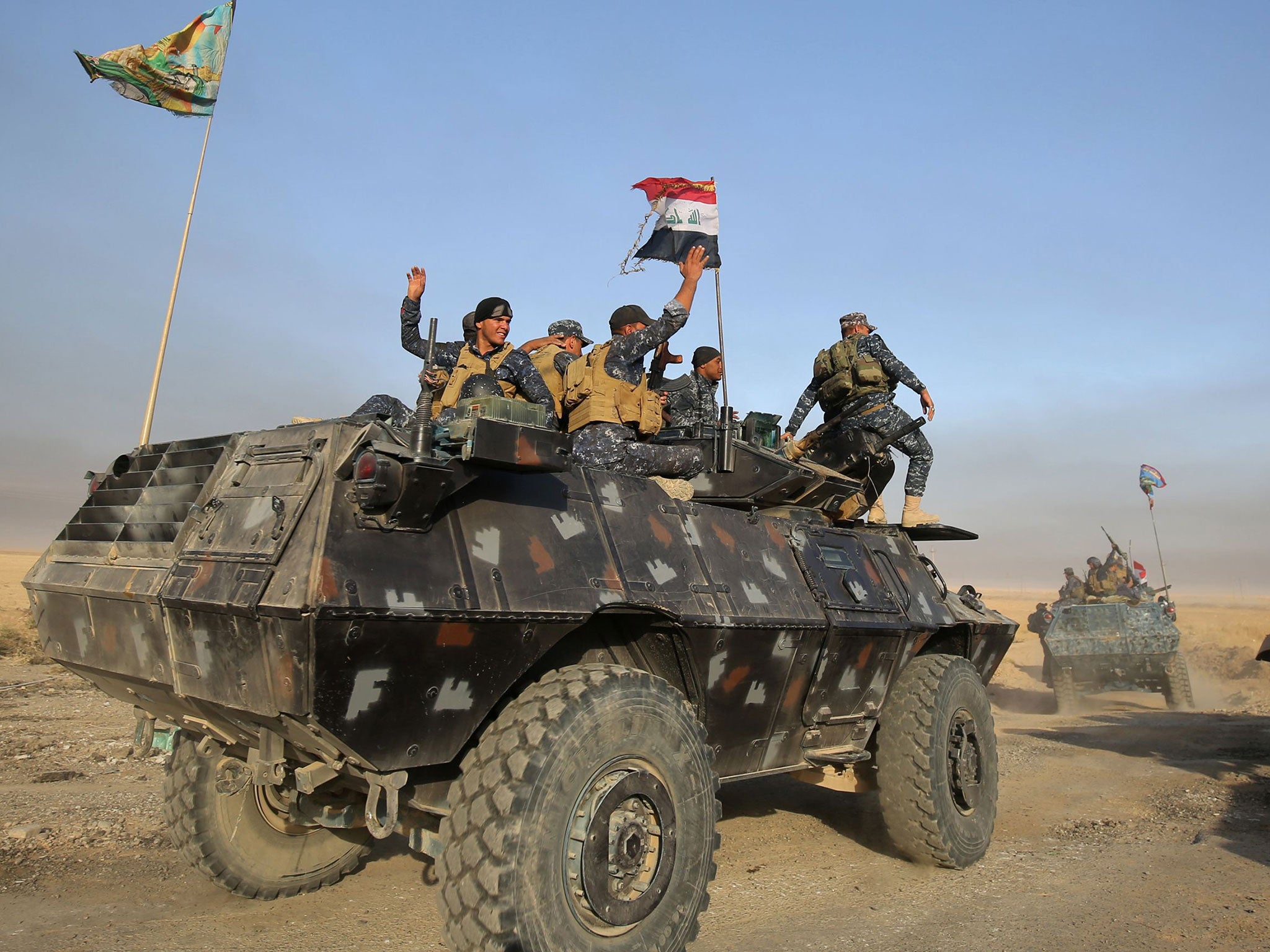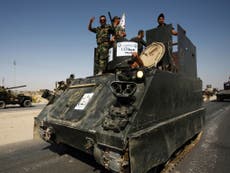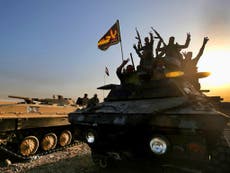Mosul offensive: Desperate Iraqis paying up to $1,000 to flee Isis stronghold as assault begins
Commanders tell families to put while flags on homes amid fears for trapped civilians

Desperate Iraqis are paying smugglers up to $1,000 (£800) to flee Mosul as security forces backed by international air strikes launch a long-awaited assault against Isis.
The United Nations and humanitarian organisations have voiced growing concern for more than one million people living inside the terrorist group’s last major stronghold in Iraq.
There are no safe routes out of Mosul, forcing families to resort to covert people smuggling at the risk of being turned in or caught by Isis fighters, or detained by forces encircling the city.
Military commanders are urging civilians to stay inside their homes as fighting begins and place white flags outside, but there are fears the symbol could be exploited for cover by jihadis seeking to use human shields.
Abdelkadr, who fled Mosul with his wife and three children, told Deutsche Welle, said they paid $600 (£500) per person to flee but the price has since increased to more than $1,000 (£800).
Even before the long-awaited military assault launched, most roads out of the city were closed by land mines and snipers, with those open leading to Syria.
The UN Refugee Agency expects up to 100,000 Iraqis to cross into Syria and Turkey to escape the Iraqi government's military assault, appealing for millions of pounds in extra funding to provide tents, winter items and stoves for displaced civilians.
Save the Children is among the groups calling for safe corridors to be established for people to leave the conflict zone, with those who have managed to escape so far facing “desperate conditions” in camps.
Aram Shakaram, the charity’s deputy country director in Iraq, said: “Unless safe routes to escape the fighting are established, many families will have no choice but to stay and risk being killed by crossfire or bombardment, trapped beyond the reach of humanitarian aid with little food or medical care.
“Those that try to flee will be forced to navigate a city ringed with booby traps, snipers and hidden landmines. Without immediate action to ensure people can flee safely, we are likely to see bloodshed of civilians on a massive scale.”
The Norwegian Refugee Council warned of a repeat of the situation seen during the assault on Fallujah earlier this year, where civilians were shot by Isis attempting to escape their homes, drowned trying to cross rivers and were detained by militias loyal to the government.
In pictures: Iraq battles to drive Isis out of Fallujah
Show all 12Iraqi forces, the Kurdish Peshmerga, Popular Mobilisation Units and international forces are currently under orders to “facilitate the transportation” of civilians to official camps.
Britain is part of the US-led coalition’s air strikes in the operation to drive Isis out of Mosul, which was announced by Iraqi Prime Minister Haider al-Abadi in the early hours of Monday morning.
Tobias Ellwood, minister for the Middle East, said the assault marked “another step forward towards clearing Daesh [Isis] from Iraq”.
“This will be the greatest challenge that Iraq’s Security Forces have yet encountered – they are up to that challenge,” he added.
“The UK, as part of the Global Coalition, is committed to continuing to provide the government of Iraq with military, humanitarian and stabilisation support.”
Mosul, Iraq's second largest city, has been under Isis rule for more than two years and militants have prepared for the invasion with underground tunnels, booby traps, suicide bombings and explosives.
It has been the scene of numerous massacres and public executions under the group’s control, with former residents telling The Independent jihadis sought to control “every aspect of life”, from children’s education to television.
Subscribe to Independent Premium to bookmark this article
Want to bookmark your favourite articles and stories to read or reference later? Start your Independent Premium subscription today.




Join our commenting forum
Join thought-provoking conversations, follow other Independent readers and see their replies
Comments